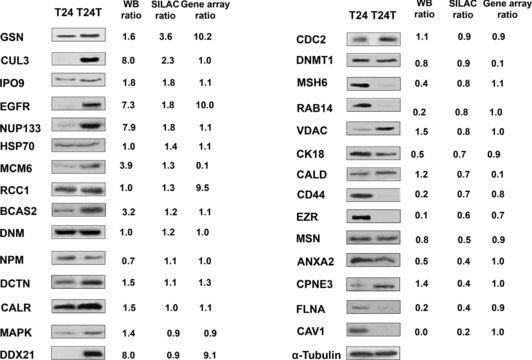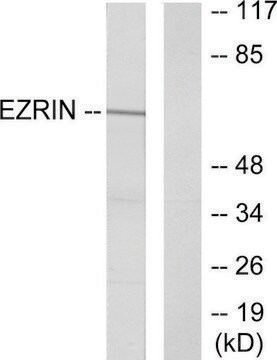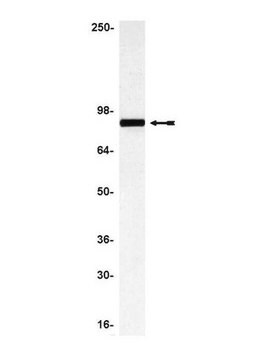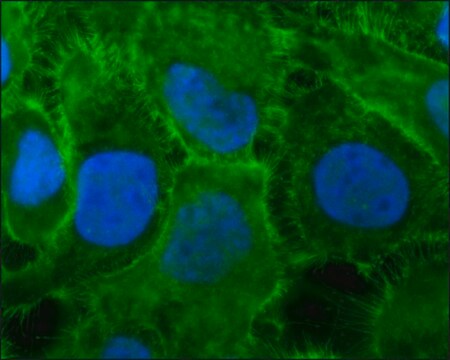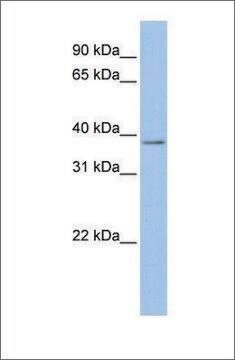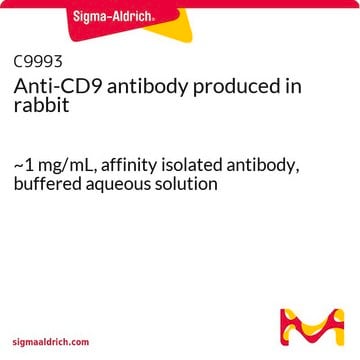SAB4200806
Anti-Ezrin antibody, Mouse monoclonal
clone 3C12, purified from hybridoma cell culture
Synonym(s):
Cytovillin, Villin-2, p81
About This Item
Recommended Products
biological source
mouse
antibody form
purified from hybridoma cell culture
antibody product type
primary antibodies
clone
3C12, monoclonal
form
buffered aqueous solution
mol wt
~80 kDa
species reactivity
bovine, canine, hamster, kangaroo, human, monkey, rat, mouse
packaging
antibody small pack of 25 μL
concentration
~1 mg/mL
technique(s)
immunoblotting: 1-2 μg/mL using using canine MDCK cells extract
immunofluorescence: 0.5-1 μg/mL using human epidermoid carcinoma A431 cells.
isotype
IgG1
UniProt accession no.
shipped in
dry ice
storage temp.
−20°C
target post-translational modification
unmodified
Gene Information
mouse ... Ezr(22350)
General description
The ERM proteins family are involved in the functional expression of membrane proteins on the cell surface, integrate Rho guanosine 5′-triphosphatase (GTPase) signaling regulating cytoskeletal organization and act as protein kinase A (PKA)-anchoring proteins. Therefore, ERM proteins seem to play an important role in the membrane transport of electrolytes by ion channels and transporters.
Immunogen
Application
Physical form
Other Notes
Not finding the right product?
Try our Product Selector Tool.
Storage Class Code
12 - Non Combustible Liquids
WGK
WGK 1
Certificates of Analysis (COA)
Search for Certificates of Analysis (COA) by entering the products Lot/Batch Number. Lot and Batch Numbers can be found on a product’s label following the words ‘Lot’ or ‘Batch’.
Already Own This Product?
Find documentation for the products that you have recently purchased in the Document Library.
Our team of scientists has experience in all areas of research including Life Science, Material Science, Chemical Synthesis, Chromatography, Analytical and many others.
Contact Technical Service